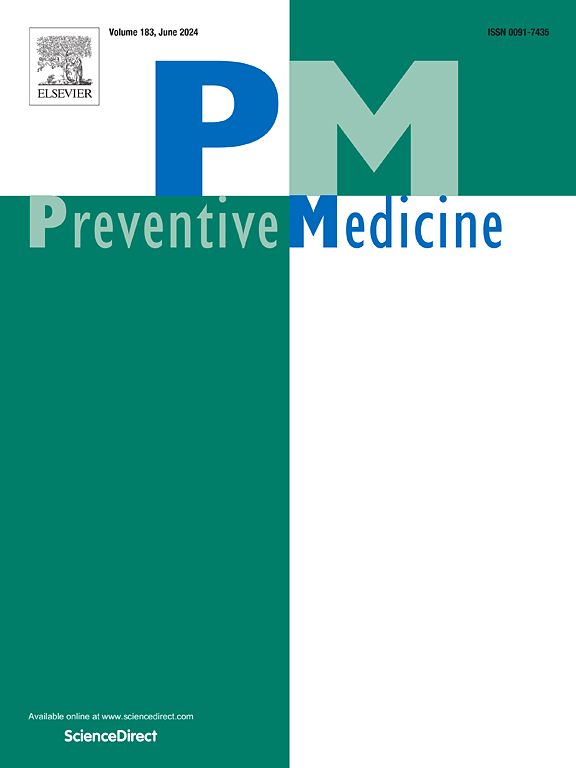Procrastination and preventive health-care in the older U.S. population
IF 4.3
2区 医学
Q1 MEDICINE, GENERAL & INTERNAL
引用次数: 0
Abstract
Objective
Maintaining health preventive behaviours in later life reduces the risk of non-communicable diseases. However, these behaviours often require effort and discipline to adopt and may be prone to procrastination. This study examined whether procrastination affected engagement in health preventive behaviours among older adults.
Methods
We applied generalised additive models to data from the 2020 wave of the United States Health and Retirement Study. Our analytic sample consisted of adults aged 50+ (n = 1338; mean = 68.24; range = 50–95). Our analysis focused on six health preventive behaviours: prostate exams, mammograms, cholesterol screenings, pap smears, flu shots, and dental visits.
Results
Procrastination was associated with less frequent engagement in mammograms and cholesterol screenings among women, though it had no significant association with pap smears or flu shots. Additionally, procrastination interacted with depression reducing the likelihood of prostate exams in men and dental visits in both men and women, such that individuals with high procrastination and low depression were associated with less frequent engagement in both preventive health behaviours.
Conclusions
Procrastination may be a behavioral risk factor for maintaining optimal health in older adults. Given that procrastination is a potentially modifiable behaviour, interventions aimed at reducing procrastination, such as simplifying tasks or providing default appointment, could improve engagement in critical health preventive behaviours.
美国老年人的拖延症和预防性保健。
目的在晚年保持健康预防行为可降低罹患非传染性疾病的风险。然而,这些行为往往需要付出努力和遵守纪律才能养成,而且很容易出现拖延现象。本研究探讨了拖延是否会影响老年人参与健康预防行为:我们对美国健康与退休研究 2020 年的数据采用了广义加法模型。我们的分析样本包括 50 岁以上的成年人(n = 1338;平均值 = 68.24;范围 = 50-95)。我们的分析侧重于六种健康预防行为:前列腺检查、乳房 X 光检查、胆固醇筛查、子宫颈抹片检查、流感疫苗注射和牙科就诊:结果:拖延与女性较少参加乳房 X 光检查和胆固醇筛查有关,但与子宫颈抹片检查和流感疫苗注射没有明显关系。此外,拖延症与抑郁症相互作用,降低了男性前列腺检查和男女牙科就诊的可能性,因此拖延症严重而抑郁症严重的人参与这两种预防性健康行为的频率都较低:结论:拖延可能是老年人保持最佳健康状态的一个行为风险因素。鉴于拖延可能是一种可改变的行为,旨在减少拖延的干预措施,如简化任务或提供默认预约,可提高参与关键健康预防行为的频率。
本文章由计算机程序翻译,如有差异,请以英文原文为准。
求助全文
约1分钟内获得全文
求助全文
来源期刊

Preventive medicine
医学-公共卫生、环境卫生与职业卫生
CiteScore
7.70
自引率
3.90%
发文量
0
审稿时长
42 days
期刊介绍:
Founded in 1972 by Ernst Wynder, Preventive Medicine is an international scholarly journal that provides prompt publication of original articles on the science and practice of disease prevention, health promotion, and public health policymaking. Preventive Medicine aims to reward innovation. It will favor insightful observational studies, thoughtful explorations of health data, unsuspected new angles for existing hypotheses, robust randomized controlled trials, and impartial systematic reviews. Preventive Medicine''s ultimate goal is to publish research that will have an impact on the work of practitioners of disease prevention and health promotion, as well as of related disciplines.
 求助内容:
求助内容: 应助结果提醒方式:
应助结果提醒方式:


